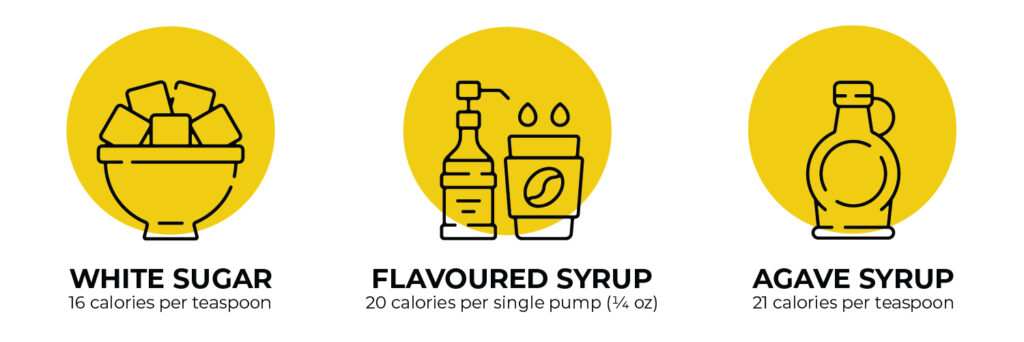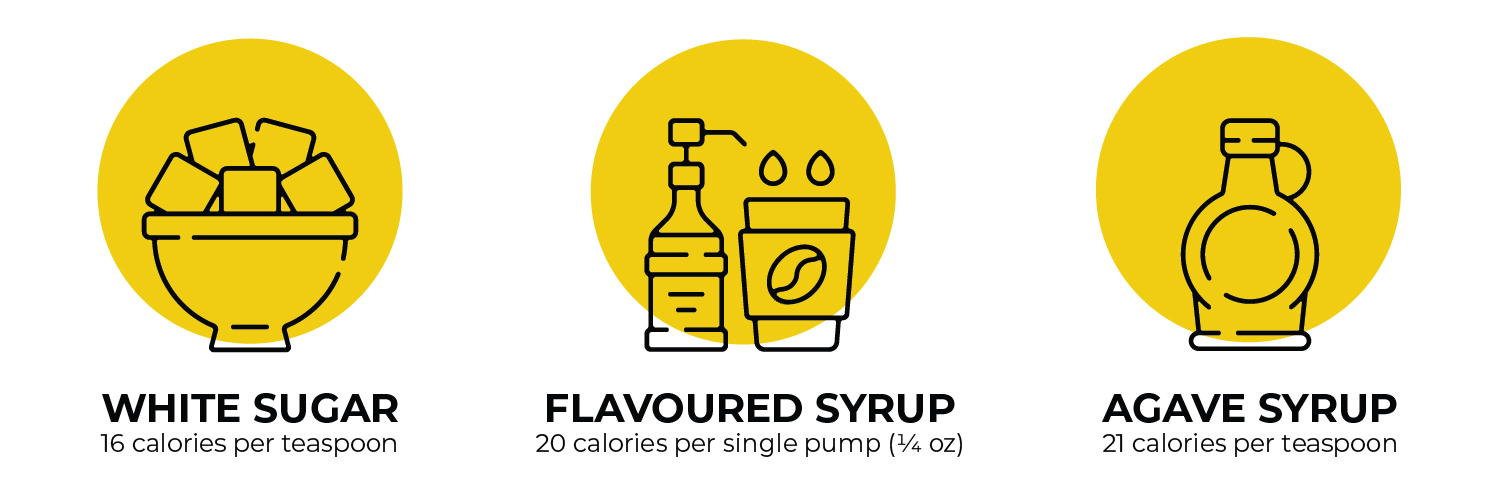
How Many Calories Are in 1 Cup of Coffee? A Comprehensive Guide
The simple question, “How many calories are in 1 cup of coffee?” might seem straightforward. However, the answer, like the world of coffee itself, is far more nuanced than a simple number. This article delves into the caloric content of coffee, exploring the factors that influence it, and providing a comprehensive guide for coffee lovers and health-conscious individuals alike. Understanding the caloric value of your daily cup is crucial for tracking your dietary intake and making informed decisions about your health. We’ll break down the essentials, from black coffee to the elaborate creations found in your local cafe.
The Caloric Baseline: Black Coffee
The foundation of our caloric investigation begins with the purest form: black coffee. Generally, 1 cup of coffee, brewed without any additions like milk, sugar, or cream, contains a negligible amount of calories. The exact figure hovers around 2-5 calories. This minimal impact on your daily caloric intake makes black coffee a popular choice for those watching their weight or following a low-calorie diet. The specific caloric value can vary slightly depending on the type of coffee bean, the roasting process, and the brewing method, but the difference is usually insignificant.
The Impact of Additives: Milk, Sugar, and Cream
The moment you introduce additives, the caloric landscape of your 1 cup of coffee dramatically changes. Milk, sugar, cream, and flavored syrups are the primary culprits responsible for inflating the calorie count. Let’s examine the impact of each:
- Milk: A splash of milk, whether it’s whole, 2%, or skim, adds calories. A quarter-cup of whole milk can contribute around 30-40 calories, while the same amount of skim milk is closer to 20 calories. The type of milk you choose significantly affects the caloric value. Plant-based milks, like almond or soy milk, can have varying calorie counts, often lower than dairy milk, but this depends on the brand and whether they are sweetened.
- Sugar: A teaspoon of sugar adds approximately 16 calories. This may seem small, but multiple teaspoons throughout the day can quickly add up. Sugar substitutes offer a calorie-free alternative, but it’s crucial to use them in moderation and be aware of any potential side effects.
- Cream: Cream, with its higher fat content, is a significant contributor to the caloric value of your 1 cup of coffee. A tablespoon of heavy cream can contain around 50-60 calories. Half-and-half falls somewhere in between milk and heavy cream.
- Flavored Syrups: The sugary, syrupy additions that give your coffee its mocha or caramel flavor are often loaded with calories. A single pump of flavored syrup can contain 20-30 calories or more, depending on the brand and flavor. These additions can quickly transform a low-calorie cup of coffee into a high-calorie indulgence.
Coffee Drinks and Their Caloric Profiles
The menu at your favorite coffee shop offers a vast array of coffee drinks, each with its own unique caloric profile. Understanding the typical calorie counts of these popular beverages can help you make informed choices:
- Latte: A latte, made with espresso and steamed milk, typically contains around 100-200 calories, depending on the size and the type of milk used. A large latte with whole milk can easily exceed 200 calories.
- Cappuccino: A cappuccino, which has a higher ratio of foam to milk, usually has fewer calories than a latte, around 60-120 calories, again depending on the size and milk type.
- Mocha: A mocha, which includes chocolate syrup or powder, whipped cream, and often a layer of chocolate shavings, can be a calorie bomb. A standard mocha can easily have 250-350 calories, or even more, depending on the size and additions.
- Frappuccino: Frappuccinos are blended iced coffee drinks that often contain significant amounts of sugar, cream, and other flavorings. These can range from 200 to over 500 calories per serving, making them a substantial source of calories.
- Americano: An Americano, which is simply espresso diluted with hot water, has a similar caloric value to black coffee—negligible—as long as no milk or sugar is added.
These figures are estimates, and the exact caloric content can vary. Checking the nutritional information provided by your coffee shop is always the most accurate way to determine the calorie count of a specific drink.
Factors Influencing Caloric Content
Several factors can influence the caloric content of your 1 cup of coffee beyond the obvious additions of milk and sugar. These include:
- Coffee Bean Type: The variety of coffee bean itself can have a minor impact on the calorie count. However, the difference is usually negligible.
- Roasting Process: The roasting process generally doesn’t significantly alter the caloric value of the coffee beans.
- Brewing Method: Different brewing methods, like French press, pour-over, or espresso, don’t have a significant impact on the caloric content of the coffee itself. The primary factor affecting calories is the additions.
- Size of the Cup: Obviously, a larger cup means more coffee, and therefore, more calories if you’re adding milk or sugar.
Health Considerations and Coffee Consumption
While black coffee is low in calories, it’s important to consider the broader implications of coffee consumption on your health. Coffee contains caffeine, a stimulant that can increase alertness and energy levels. However, excessive caffeine intake can lead to anxiety, insomnia, and other side effects. Moderation is key. Additionally, the additives you choose for your 1 cup of coffee can significantly impact your overall health. Choosing low-fat milk options, using sugar substitutes sparingly, and opting for unsweetened flavors can help you enjoy your coffee without excessive caloric intake. [See also: The Health Benefits of Moderate Coffee Consumption]
Coffee also has potential health benefits. Studies suggest that moderate coffee consumption may be linked to a reduced risk of certain diseases, such as type 2 diabetes, Parkinson’s disease, and liver disease. However, these potential benefits should not be seen as a reason to consume excessive amounts of coffee or to ignore the impact of additives on your health.
Making Informed Choices for Your Daily Cup
Understanding how many calories are in your 1 cup of coffee is essential for managing your diet and maintaining a healthy lifestyle. Here are some tips to help you make informed choices:
- Choose Black Coffee: If you’re watching your weight, black coffee is the best option. It provides the benefits of coffee without the added calories from milk, sugar, or cream.
- Be Mindful of Additives: If you prefer to add milk or sugar, measure your portions carefully. Consider using low-fat or plant-based milk options and sugar substitutes in moderation.
- Read Nutritional Information: When purchasing coffee drinks from a cafe, always check the nutritional information. This will give you a clear understanding of the calorie count and other nutritional details.
- Experiment with Flavors: Explore unsweetened flavor options, such as cinnamon, nutmeg, or unsweetened cocoa powder, to add flavor to your coffee without adding calories.
- Consider Portion Sizes: Be mindful of the size of your coffee drinks. A smaller cup will naturally contain fewer calories.
By being aware of the caloric content of your 1 cup of coffee and making informed choices, you can enjoy your daily coffee ritual without compromising your health goals. It’s all about finding a balance between enjoying your favorite beverage and maintaining a healthy lifestyle. Remember that the perfect cup of coffee is the one that fits your individual needs and preferences.
Conclusion: The Caloric Reality of Coffee
In conclusion, the answer to “How many calories are in 1 cup of coffee?” is complex, but understanding the factors involved is crucial. Black coffee is virtually calorie-free, while the additions of milk, sugar, cream, and flavored syrups can significantly increase the caloric value. By making informed choices and being mindful of your consumption, you can enjoy your coffee without compromising your health goals. Whether you prefer a simple black coffee or a more elaborate concoction, the key is to be aware of the caloric impact of your choices. The journey to understanding your 1 cup of coffee is a journey to understanding your health and wellness. [See also: Coffee Recipes for the Health-Conscious Coffee Lover]


